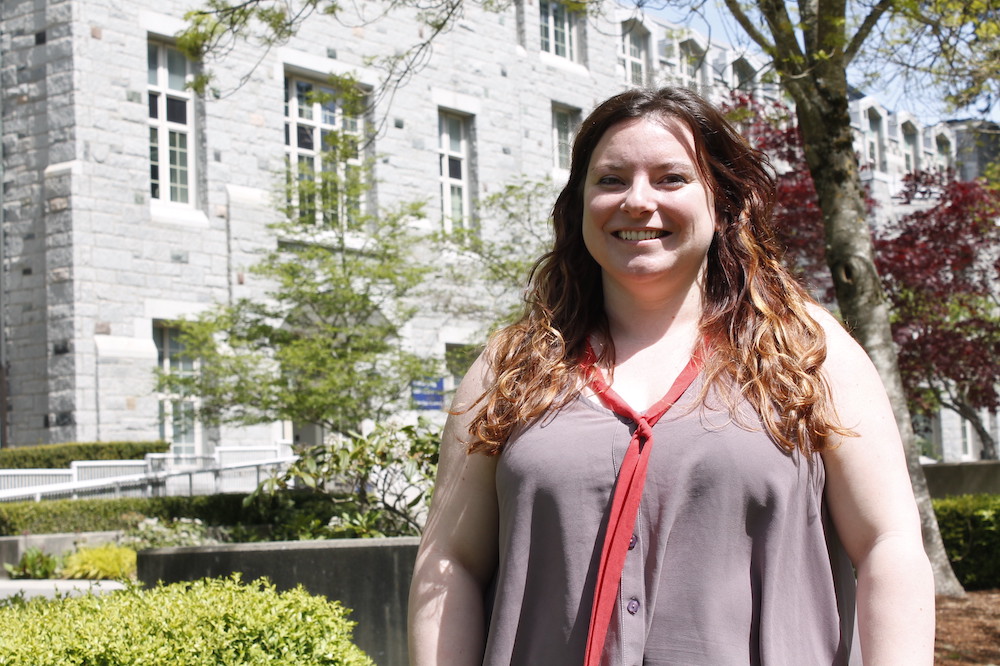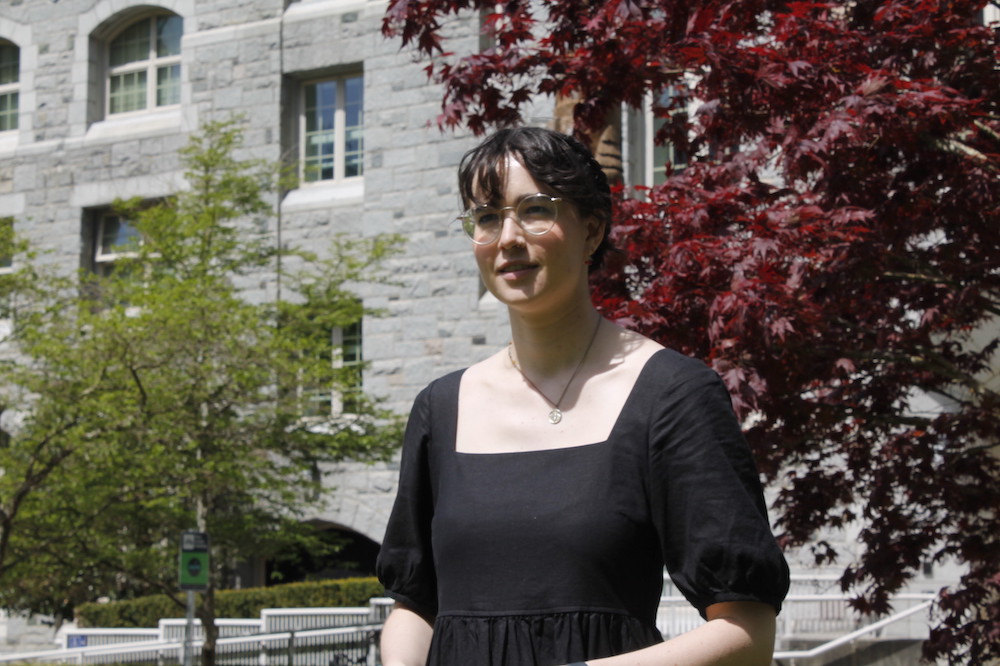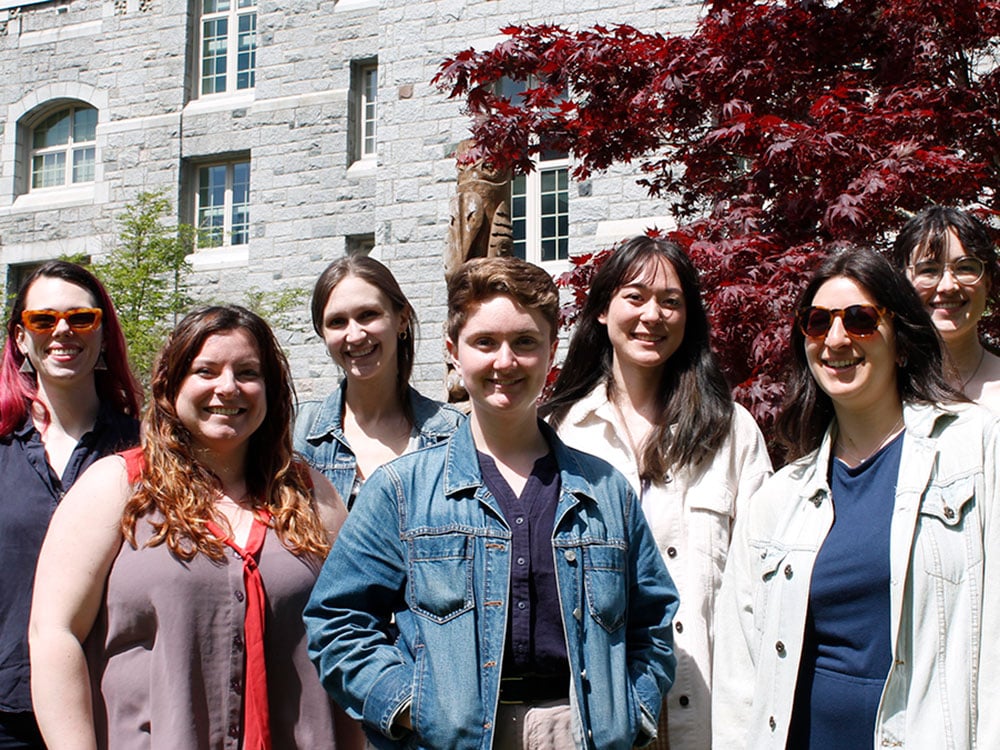Jessica Wolf said her former supervisor once told her she should think about her research at all times — even in the shower.
Wolf, a mechanical engineering student, is one of thousands of graduate researchers at the University of British Columbia.
As a research assistant, Wolf received an annual stipend of $24,000. But she was told to not take other work, she said, because they wanted her in the lab.
Wolf says her story is not uncommon among the school’s graduate students.
Now, those students are one step closer to unionizing.
Last week, British Columbia’s Labour Relations Board ruled more than 55 per cent of more than 3,200 student researchers at the school have signed cards to join the Canadian Union of Public Employees Local 2278, enough to unionize without a run-off vote.
It would be the largest union certification in B.C. in at least 20 years. But it’s not a done deal.
UBC has objected to the students’ bid on multiple counts, with the primary argument that that student research assistants like Wolf are not actually employees.
Allison Render, an attorney representing the school, argued at the labour board earlier this month that those students are receiving a form of scholarship, and thus cannot unionize under the province’s labour code.
UBC has also argued roughly 900 of the students are not eligible because their contracts expired in late April and early May, shortly after CUPE 2278 filed its application with the labour board.
But student researchers like Wolf said their positions are clearly jobs — albeit precarious ones.
The Tyee spoke to seven graduate student researchers who were part of CUPE 2278’s campaign.
They said many students helping produce award-winning research at the school are struggling to make ends meet.
They said many are expected to work long hours without extra pay. In some cases, they said students who experienced discrimination on the job had little recourse.
“If everything was perfect and the channels were perfect, we wouldn’t need a union,” said Maggie Slein, a PhD student in the school’s zoology department. “But they’re not working.”
CUPE 2278 already represents teaching assistants at UBC, many of whom work second jobs as research assistants.
Emily Cadger, the union’s president, says that’s often necessary because of how little those research jobs pay. Many positions are funded at least in part by federal research grants, Cadger said, that have been stagnant for many years.

The result is that for many students, even two jobs aren’t enough in a city as expensive as Vancouver. “That’s one thing we found when running surveys, was that there were really high percentages of people who had another job outside of campus,” Cadger said.
University spokesman Matthew Ramsey said UBC supports increasing the size of those research grants to improve funding for students and has asked senior governments to do so.
But many say they cannot wait that long. Phyllis Pearson, a former CUPE 2278 president and an organizer, said she once filed eight T4 tax forms in a single year, a reflection of how she had to cobble together different jobs.
Pearson says CUPE 2278 had ambitions of organizing research assistants for years.
The union launched the current campaign last fall after the B.C. government passed a new law in April making it easier for new unions to certify. “It just seemed like everything was coming together, and now was the time that we had enough time to do it,” Pearson said.
Around the same time, rising inflation and soaring rents were already gnawing at students’ budgets.
Liz Locke, a CUPE national organizer, says she was part of a team that examined unionizing research assistants at the school a decade ago. Today, she says, compensation is “pretty much the same.”
“They were making the same amount, and even back then that was a squeeze,” Locke said.
Pay is not the only issue. Slein says many research assistants are also asked to work well over what a normal job would entail, often to finish a given experiment or job. “When you’re a TA, you’re like OK, I’ve got my hours,” Slein said. “It’s not this amorphous ‘Did I do a good job? Am I doing enough?’”
Sam Connolly, a master’s student studying the medical applications of physics, says many of their colleagues work hours well beyond what most bosses would expect.
“A lot of my colleagues, they will work 15-, 14-hour days at the MRI scanner,” said Connolly. “They are going home at 11 p.m. and they are expected to be back at 9 a.m. the next morning.”
And unlike teaching assistants, Connolly says student researchers have few good options if they experience discrimination on the job.
“There have been incidences of harassment or sexual advances towards women who are in my lab. Right now, your only real option is to go to your supervisor. And sometimes your supervisor is the person mistreating or being abusive in your working relationship,” Connolly said.
“These are the people who are deciding your academic future. When you go and make these kinds of complaints right now, you are risking reference letters. You are risking your standing in the field.”
Ramsey said the school treats such situations “very seriously.” He said research assistants today are advised to first speak to a supervisor or director of the graduate program but that they can also contact the head of their respective graduate school. The university also maintains an Ombuds’ office, an Equity and Inclusion Office, an advocacy service for graduate students and an office that specifically investigates allegations of sexual misconduct.
Cadger believes stories about such working conditions are partially why the campaign took off.
The overwhelming majority of union drives in B.C. involve workplaces with less than 100 employees.
CUPE 2278 would have needed to collect signatures from nearly 1,800 students to hit the threshold it reached (the union would not disclose exact figures of how many signatures it garnered).

Pearson credited the success to the union’s approach of “mini-campaigns” to organize each department. Gracy Buckholtz, a master’s student in botany and the vice-president of CUPE 2278, said last-minute email blasts helped them reach students, including those working off-campus. Erica Mildner, a PhD candidate in sociology, said some students voted while they were in other countries conducting research. “They were like ‘I’m on the plane, it’s 5 a.m. in India and I voted,’” she said.
Like many students involved in the campaign, Buckholtz is frustrated with UBC’s position that the assistants aren’t employees. “If it was just a scholarship, there should be nothing tied. This is money you are given. That is not the case,” Buckholtz said.
“I think if I stopped going to the lab and I just disappeared, it’s not like that [research assistant] money would keep coming in,” she continued.
UBC is not the only school to argue student researchers are not workers.
Simon Fraser University voluntarily recognized about 1,500 of its research assistants as unionized employees in 2021. But it then argued that about 800 of those students actually did not meet the definition of an employee and were in fact getting a form of scholarship.
UBC and CUPE 2278 are now set to present arguments to the province’s labour board in the coming months. Neither side expects a decision until late summer.
Ramsey said UBC’s position is based in the province’s labour code and “accurately reflects the circumstances at UBC.”
But Mildner argues the school should instead voluntarily recognize research assistants.
“They’re going to pay an attorney to do a full hearing, to present evidence… that we’re not doing real work. What if you put that money to just paying us a living wage?” Mildner said.
“It just feels really offensive. It feels like a slap in the face.” ![]()
Read more: Rights + Justice, Education, Labour + Industry
















Tyee Commenting Guidelines
Comments that violate guidelines risk being deleted, and violations may result in a temporary or permanent user ban. Maintain the spirit of good conversation to stay in the discussion and be patient with moderators. Comments are reviewed regularly but not in real time.
Do:
Do not: